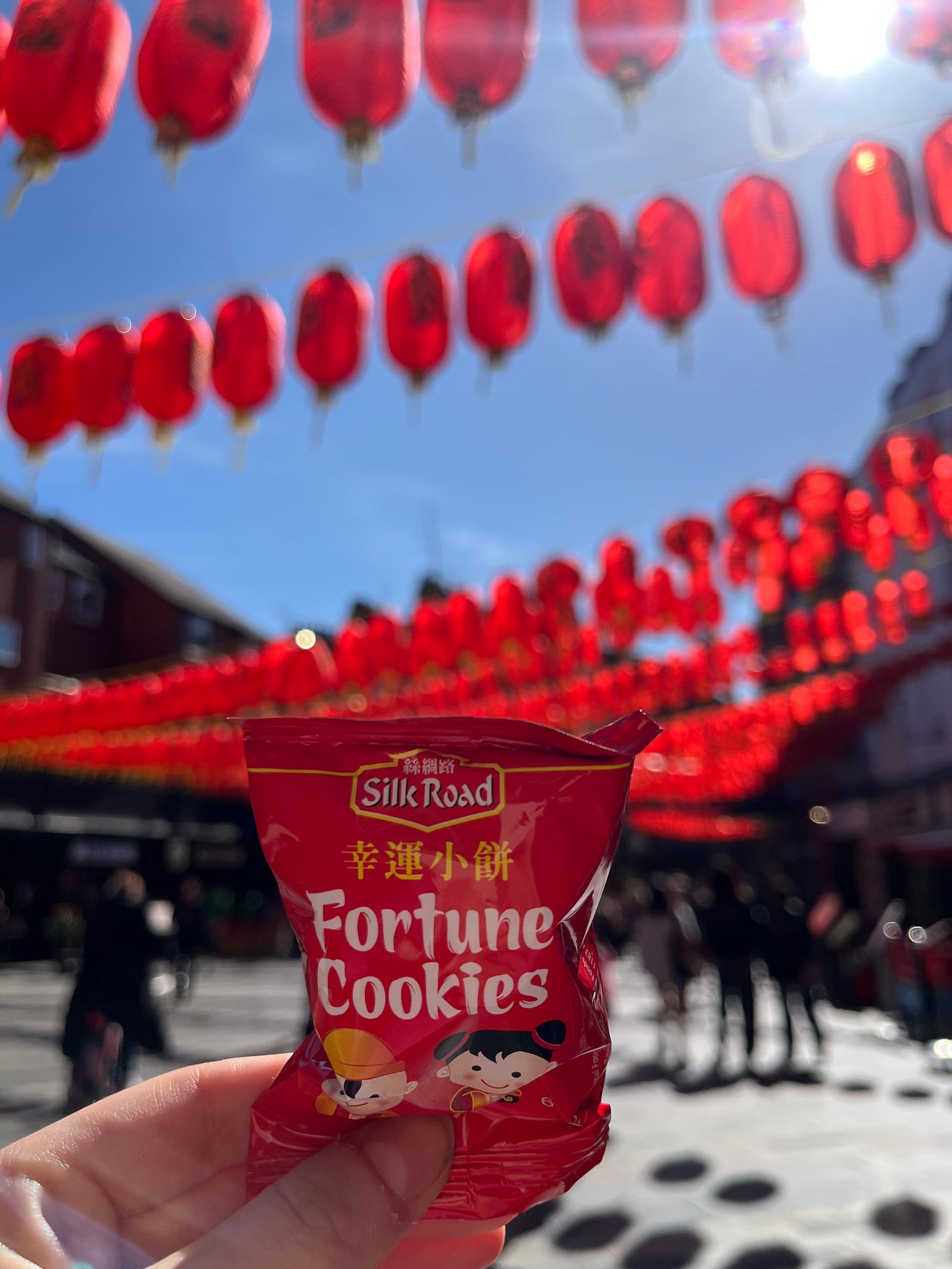The digitalisation of fortune cookies
The fortune cookie's journey reflects how we commercialise and digitise culture, raising the question: does automation take the magic out of culture?
Artificial Intelligence is now writing our fortune cookies. At first, it sounds amusing. But it’s also a reflection of how even our smallest traditions are being digitised and commercialised.
Fortune cookies are already a product of reinvention, often mistaken as an ancient Chinese tradition, despite them being born in California and shaped by Western perceptions of Chinese culture. Now, with AI generating fortunes, we see another layer of Western reinterpretation: the automation of wisdom, efficiency replacing the mystique of the handwritten slip.
Haonan Guo is a Chinese Teacher at the Confucius Institute of Oxford Brookes University, and grew up in China. When asked if fortune cookies reflect authentic Chinese culture and tradition, she replied: “I don’t think so. In China we don’t have anything like fortune cookies. The first time I had a fortune cookie was in university.”
Even though fortune cookies are not a product of traditional Chinese culture, the fortunes they carry have long played into Western stereotypes of China, and have become a staple of Chinese cuisine in the western world. Now, with AI generating these messages, this reinterpretation moves one step further from cultural authenticity, reducing what was once a personal or poetic touch to an algorithmic formula designed for mass production.
I spoke to Richard Pepper, Oracle Transformation Leader and ESG Advocate, who has worked in technology and AI for 30 years, about his views on the growing role of AI in everyday life.
Artificial intelligence has of course been given its name for a reason; it is intelligent. As Pepper says: it has a “wealth of information” and “access to absolutely every piece of poetry and texts, Shakespeare, sonnets, essays that's ever been written.” With such vast knowledge at its disposal, AI might be the perfect tool for crafting fortune cookies. It can analyse patterns, tap into centuries of literary wisdom, and generate messages that might appear profound or inspiring. So, given its remarkable capabilities, could AI deliver on the promises of fortune cookies, or is something vital still missing?
However, when asked if AI can truly rival human capabilities, Pepper replied that “AI hasn’t caught up yet”, as the ‘human touch’ is very important with all things creative, and he “fears that in day to day life, AI could remove a lot of the human element of things.”
Pepper also spoke about a time where AI showed its lack of sensitivity: “I lost my mum about five years ago to dementia, and I was cancelling insurance policies, and I was typing into the AI agent. I said, ‘my mother's just passed away, I'd like to cancel.’ And it came back and said ‘that's fantastic news!’ And you think just having understanding, empathy and thought and emotions and all of that just isn't quite there yet.”
The empathy and thought that Pepper highlights is very important to fortune cookies, as it ensures the messages feel thoughtful and sincere, rather than generic or formulaic. They are meant to evoke emotions and provide a sense of comfort or hope, which might be lost in automated, impersonal messages, which may come across as insensitive or harsh.
The whole purpose of fortune cookies could be at stake, as Pepper highlights that: “If you've opened a fortune cookie, and you know it's been written by a human, you would almost believe it more, or you’d dismiss it more if you knew it was written by AI in a computer.” Part of the charm of fortune cookies is the sense that the message inside comes from a thoughtful, human touch, whether it’s something insightful, funny, or even a little strange. But when that personal touch is replaced by AI, does it take away the excitement? Is AI diminishing the thrill of fortune cookies? As technology continues to play a bigger role in our lives, we may lose some of the small, delightful moments that come from human creativity and connection.
I also spoke to Katie Nicoll, Administrator and Marketing Assistant at the Confucius Institute at Oxford Brookes University, about the impact on Chinese culture.
She has a strong aversion to AI, explaining that: “AI is such a leach on creativity, sucking the life out of things that people can do really well.” For Nicoll, the rise of AI in areas traditionally rooted in human creativity, like the writing of fortune cookies, feels like a step in the wrong direction.
She was especially disappointed to hear about the use of AI in fortune cookies, saying: “Chinese culture and philosophy are really interesting, and it is a shame that AI would be taking that away from them.” For her, the idea of AI reducing something as nuanced as cultural expression into a generic, automated process feels like a loss, not just for Chinese culture, but for creativity as a whole.
Despite fortune cookies not being authentically Chinese, Nicholl says that “they have such a rich culture and history, I think AI wouldn’t be able to replicate that completely, and the true Chinese culture wouldn’t be seen in a fortune cookie if AI was writing it.” In her view, the machine-generated fortunes lack the layers of meaning, emotion and personal touch that give cultural artefacts their depth and authenticity.
However, AI is evolving rapidly, transforming and digitalising countless aspects of our lives; fortune cookies are unfortunately just a small glimpse of the bigger picture.





